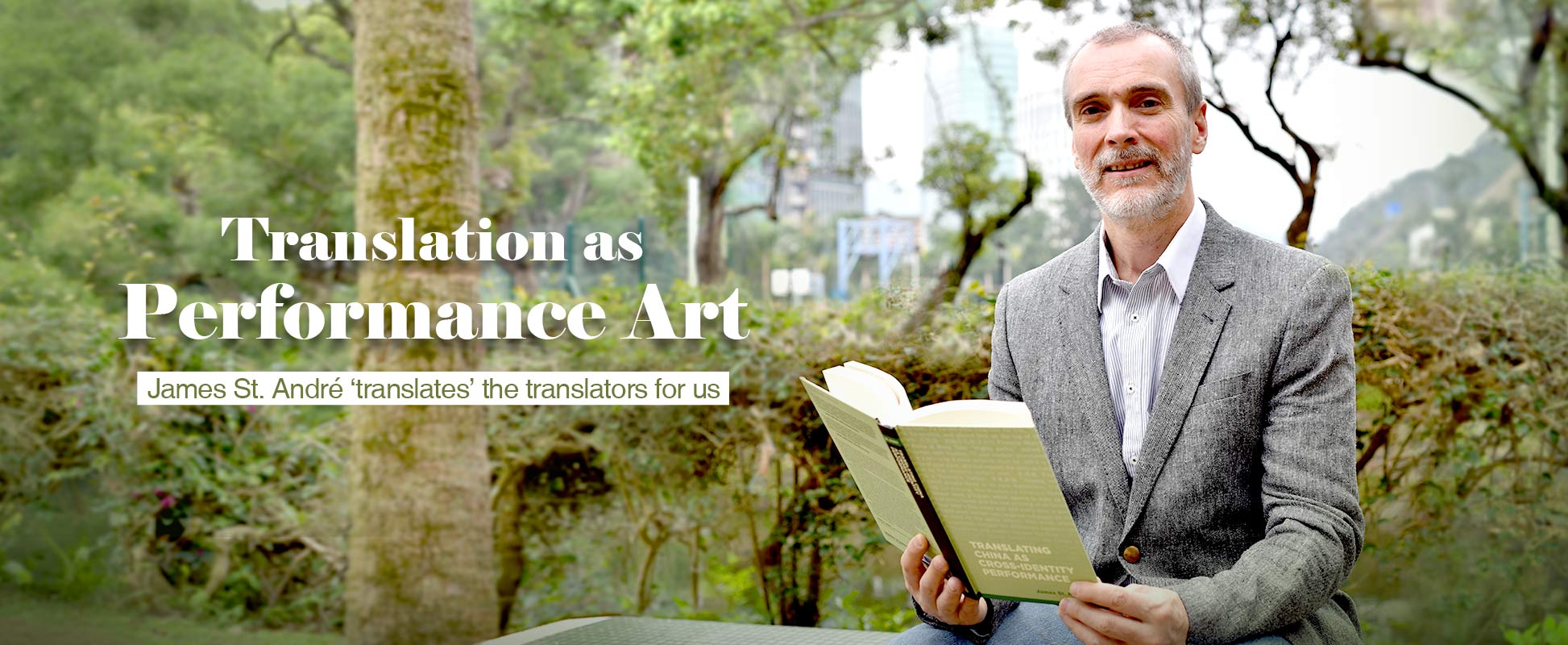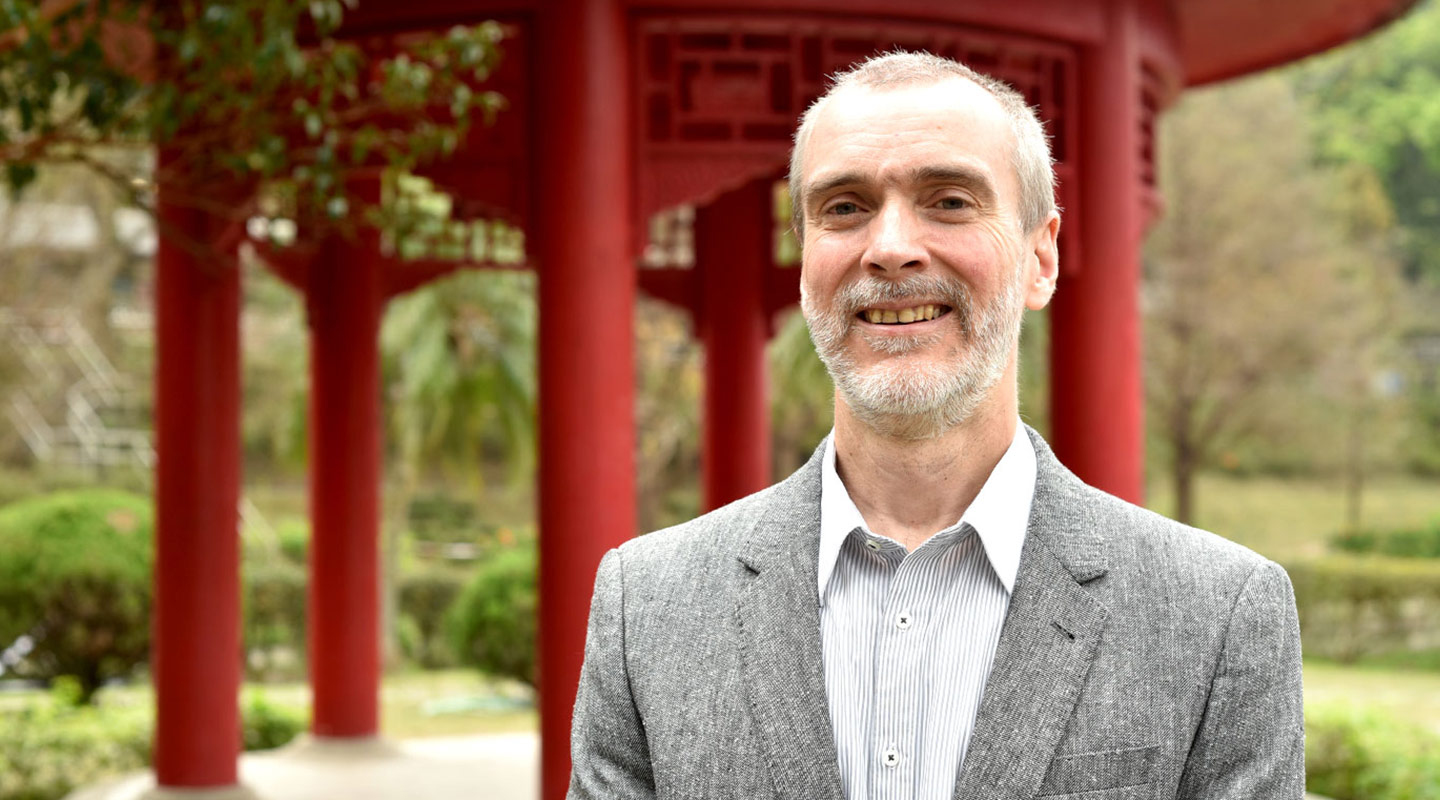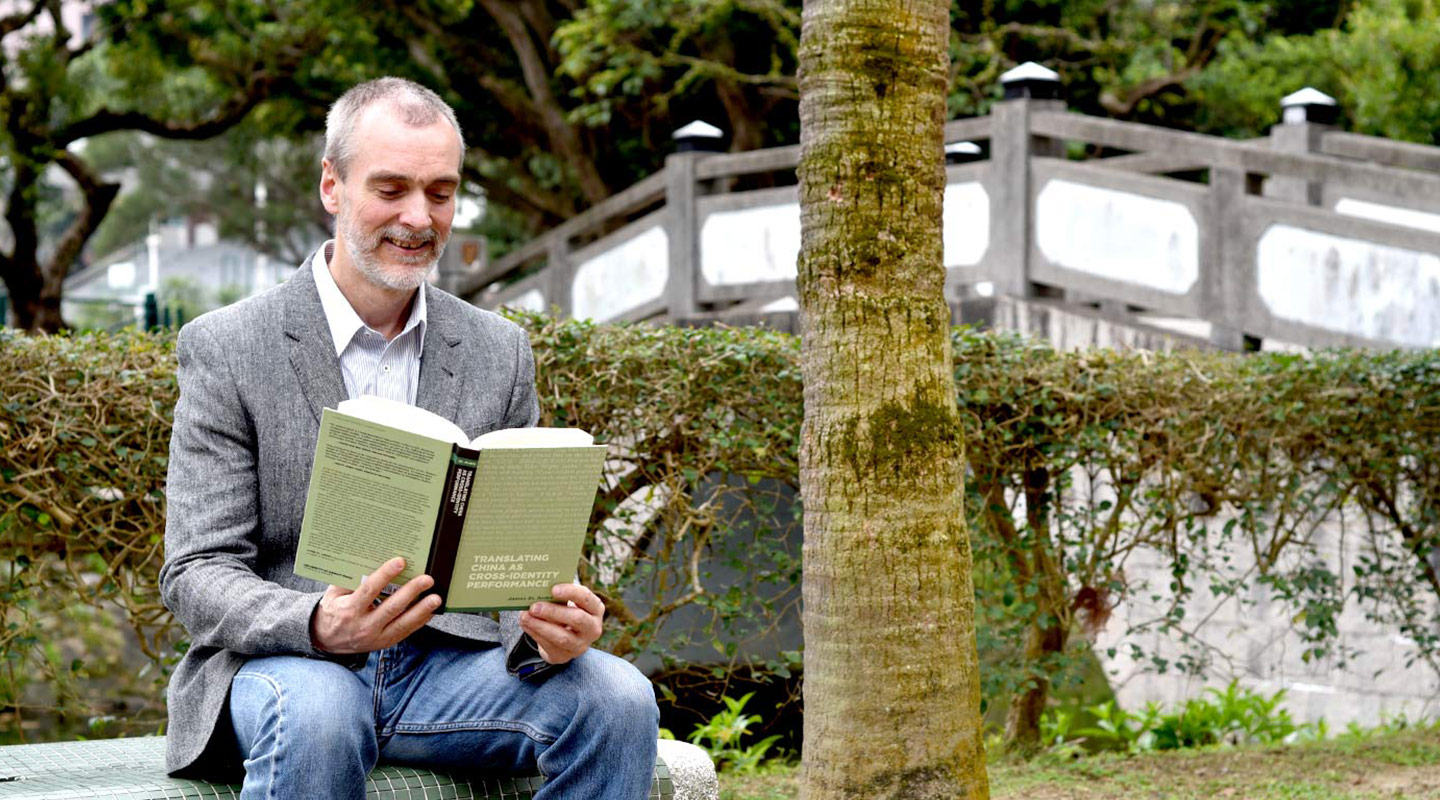| May 2019 |
|---|
|
People perform in many ways, most obviously on stage but also in the ways they present themselves. ‘Passing’ as a different race, dressing as a drag queen, playing to stereotypes, or subverting them – they’re all part of the act. |
|
We also perform in language. Our writing is intended for an audience, and consciously or not we may take on different guises to ensure our message gets across. |
|
Translators, too, perform, although they’re expected to do so behind the scenes. Translation as a performance is the best metaphor for what they do, in the eyes of James St. André, a professor of translation at CUHK. |
|
St. André hopes that viewing translators as performers will earn them the attention and respect they deserve for their work. It’s taken more than a decade of thinking and writing about metaphors in translation studies to arrive at this most-apt of descriptions. |
|
‘Translation is seen as walking in someone else’s footsteps, a slave who doesn’t own the fruits of his labour, who is passively painting a portrait,’ St. André says. ‘They’re all kind of derivative, metaphors that think of translation as a secondary, non-essential, non-interesting task somebody has to do.’ |
|
St. André, an associate professor in CUHK’s Department of Translation, hopes his new way of describing translation will help change how people think about translation, and even how translators think about themselves. |
| Full interview in CUHK Newsletter No.538: http://www.cuhk.edu.hk/english/features/james_st_andre.html |
News and Events
CUHK Newsletter - Translation as Performance Art






